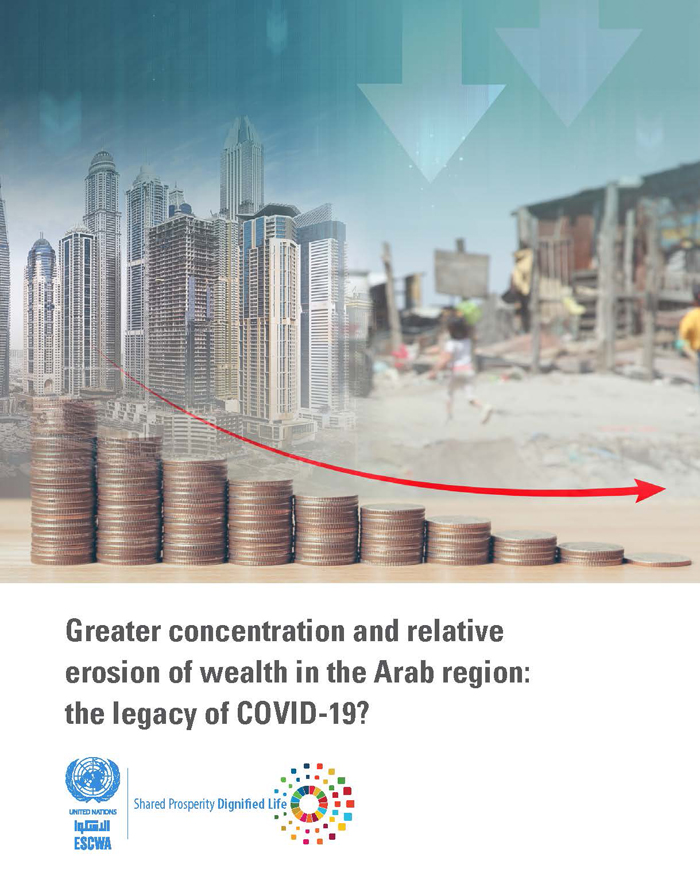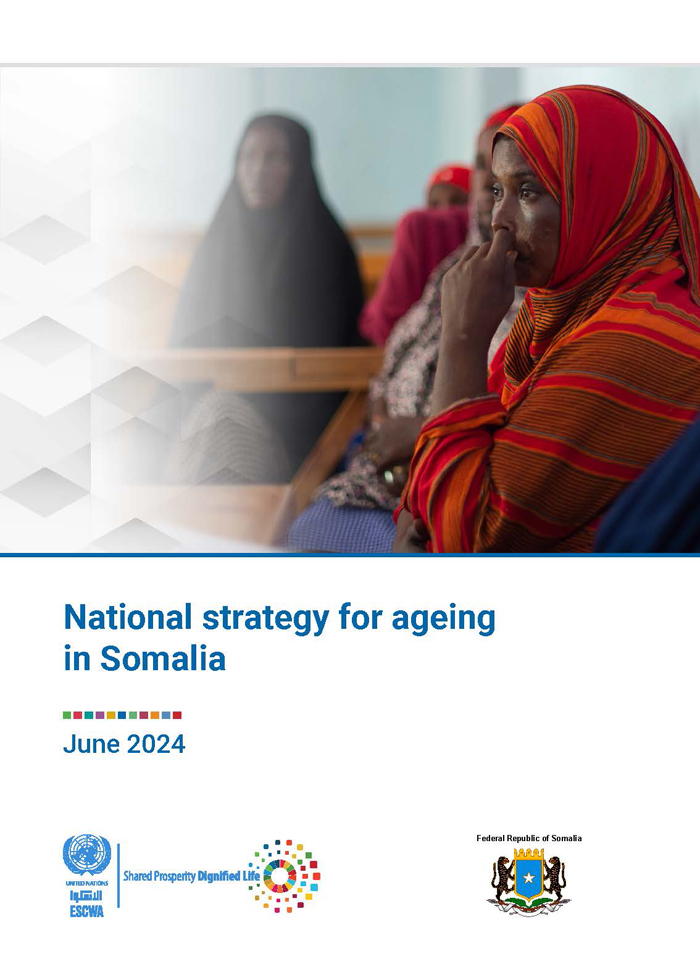
ESCWA Publication: E/ESCWA/CL2.GPID/2022/TP.10
Country: Arab region
Publication Type: Information material
Cluster: Gender Justice, Population and Inclusive Development
Focus Area: 2030 Agenda
Initiatives: Governance and institution building
SDGs: Agenda 2030
Keywords: Covid-19, Wealth, Income distribution, Economic gap, Economic growth, Income policy
Greater concentration and relative erosion of wealth in the Arab region: the legacy of COVID-19?
March 2022
Despite the economic crisis precipitated by the COVID-19 pandemic, the Arab region’s economic elites have further increased their grip on the region’s assets, both in terms of their share and in absolute value. While most economic groups in the region saw their holdings eroded to some degree between mid-2019 and end-2020, and those in the lower middle and the bottom of the wealth pyramid plainly backslid in terms of their holdings, a large number of individuals broke through the $1 million or higher wealth marks. From a global perspective, half of the 16 countries with the highest increase in wealth inequality have been Arab countries. Consequently, a third of the 20 most unequal countries today are Arab countries.
Development has been unequal across all Arab subregions, but especially in Gulf Cooperation Council countries and Arab low-income and conflict-affected countries. Reducing inequality and vulnerability to poverty calls for an integrated approach based on a portfolio of complementary measures. This entails assisting the poor in alleviating their socioeconomic challenges, as well as working with the rich to put their wealth to the best social use, in a sustainable and equitable manner. The effective implementation of fiscal reforms should be grounded on solid governance and accompanied by wide social dialogue.
Related content
2030 Agenda
,
Despite the economic crisis precipitated by the COVID-19 pandemic, the Arab region’s economic elites have further increased their grip on the region’s assets, both in terms of their share and in absolute value. While most economic groups in the region saw their holdings eroded to some degree between mid-2019 and end-2020, and those in the lower middle and the bottom of the wealth pyramid plainly backslid in terms of their holdings, a large number of individuals broke through the $1 million or higher wealth marks. From a global perspective, half of the 16 countries with the highest increase in wealth inequality have been Arab countries. Consequently, a third of the 20 most unequal countries today are Arab countries.
Development has been unequal across all Arab subregions, but especially in Gulf Cooperation Council countries and Arab low-income and conflict-affected countries. Reducing inequality and vulnerability to poverty calls for an integrated approach based on a portfolio of complementary measures. This entails assisting the poor in alleviating their socioeconomic challenges, as well as working with the rich to put their wealth to the best social use, in a sustainable and equitable manner. The effective implementation of fiscal reforms should be grounded on solid governance and accompanied by wide social dialogue.



